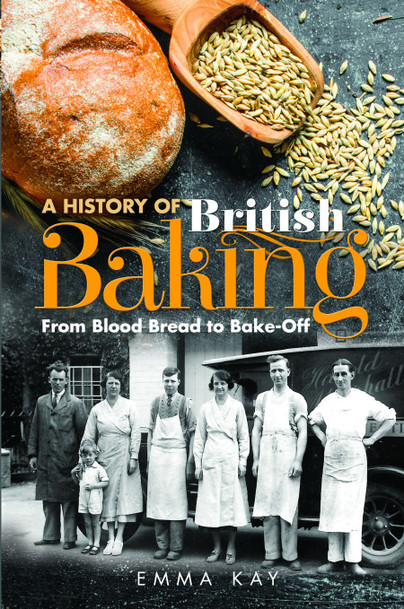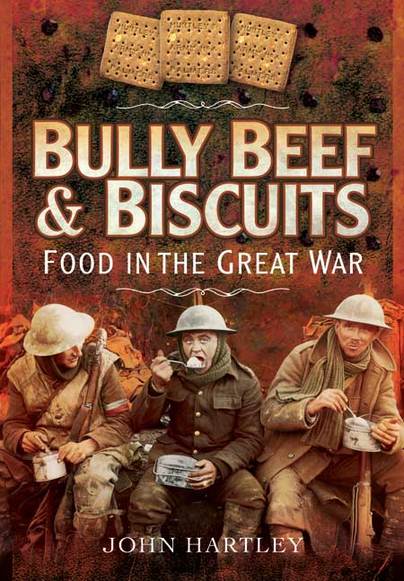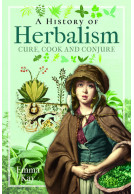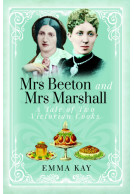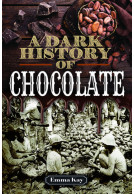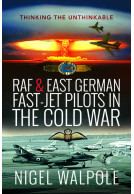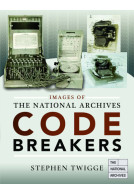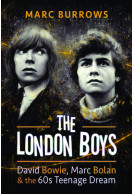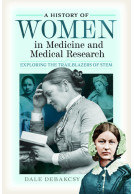A History of British Baking (Hardback)
From Blood Bread to Bake-Off
Imprint: Pen & Sword History
Pages: 256
Illustrations: 100 black and white illustrations
ISBN: 9781526757487
Published: 30th September 2020
(click here for international delivery rates)
Need a currency converter? Check XE.com for live rates
| Other formats available - Buy the Hardback and get the eBook for £1.99! | Price |
|---|---|
| A History of British Baking ePub (30.7 MB) Add to Basket | £6.99 |
The British have been baking for centuries. Here, for the first time, is a comprehensive account of how our relationship with this much-loved art has changed, evolved and progressed over time.
Renowned food historian and author, Emma Kay, skilfully combines the related histories of Britain's economy, innovation, technology, health, cultural and social trends with the personal stories of many of the individuals involved with the whole process: the early pioneers, the recipe writers, the cooks, the entrepreneurs. The result is a deliciously fascinating read, one that will prove to be juicer than the juiciest of juicy baked goods.
Rating: 5 out of 5 stars
NetGalley, Chrissie Robinson
A wonderful book that gives a real insight into the history of baking. It does contain some recipes however this book is more about the the history of food preparation and baking methods, which was absolutely fascinating. Great that it includes some of my favourite foods such as mince pies and sausage rolls. A real reflection on old recipes and people from the past. If you love a bit of social history and particularly food, you'll love this book.
A fascinating historical look at British baking and how it has evolved. Well written and perfectly researched.
NetGalley, Dannielle Fletcher
This was an interesting book that was heavy on historical details, most of which I found fascinating. It’s less of a cookbook than I was expecting, but it definitely covered British baking from A-Z.
NetGalley, Leith Devine
A captivating and well-researched read that delves deep (and I mean, really deep!) into baking and particularly in Britain. Loved all the details the author added - didn't mind that the focus seemed to be 'scattered' on most pages to add a tidbit here and a tidbit there. Found this to be absolutely charming and really informative, a lot of places eliciting an 'Aha!' when history was thus explained and suddenly made a whole lot more sense.
NetGalley, Zee M
Lovely book for anyone who enjoys baking and/or loves history in general. Kudos to the author for such a profound and interesting book
Reviewed by Rosemary Booth
WDYTYA? Magazine, March 2021
There are some well-illustrated, mouth-watering recipes interspersed throughout the book.
Overall, the title is not only a cover-to-cover read, but also invaluable for references purposes.
This is a very detailed book about the history of baking.
NetGalley, Karen Ashley
It’s a very well researched book and the author goes into lots of detail.
I found the book captivating, I kept putting it down to indulge in my own baking. I’m sure there are lots of amateur bakers who would like this book too; in fact I have several family members who are already eager to read it now that I’ve finished.
Rosie Amber
Read the full review here
Packed with history and with numerous period recipes for you to try at home, this is a fascinating read for lovers of baking and or history.
Family Tree, February 2021
This is a fascinating read for anyone who wants to expand their knowledge of British baking, it looks at what was home grown to the influences from around the world.
For the Love of Books
It starts with the history on where it all began, some 4000 years ago, and then dives into several interesting recipes from different books and texts from Roman times to more recent Victorian cook books.
The Roman recipes, which have been translated into available ingredients and a recipes we can actually follow, gives you some confidence in trying more complex recipes later in the book.
It continues through the ages with some insight into where baking came from, and some very interesting opportunities encouraging readers to give them a go through clear, easy to understand instructions.
Even if you do not want to try the recipes, the history and stories around the way baking has evolved is well worth having this book on the shelf.
She shares lots of recipes, which is really nice. Some of them are written with the old spellings, so it is interesting to read them. I think it’s easier to read them aloud. There are recipes and mentions of all sort of dishes, including cheesecake. Many of the pictures in the book are with her own bakes, which is lovely. I imagine that a lot of care and love went into creating them and sharing them in her book.
Coffee and Books
Read the full review here
This is a fascinating overview of the interplay between historical events, technical advances, and the evolution of food preparation and consumption over the past several centuries in Britain. It ranges from descriptions of the royal menus of the 1400-1500s, to the work of the Women's Land Army during WWII, to the kitchen supply of the ill-fated Titanic. Sprinkled throughout are depictions of kitchens and machinery during these times, and the stories (often with recipes) behind well-known dishes such as Victoria sandwich and Woolten pie. Cookbooks are generally a series of recipes, interspersed with short historical or anecdotal asides; here, that formula is essentially inverted, to good effect -- the anecdotes keep the overall historical narrative flowing, and are the most entertaining portions of the book.
NetGalley, Shyunti Das
Rating: 5 out of 5 stars
NetGalley, Karen Hancock
A History of British Baking: From Blood Bread to Bake-Off by renowned food historian, Emma Kay, gives readers insight into how some of the most beloved British baked good evolved. True foodies, who not only cook but are curious about how certain dishes came about, and want to read up on it, will find themselves hooked on this book. Although it’s not a cookbook with beautiful photographs, and dozens of mouthwatering dishes, there are black and white photos along with vignettes and historical information that will inform and enlighten readers.
This book is extremely well-researched, and the prose is written in an excellent, flowing narrative that anyone interested in the historical aspects of food will be excited about. Although there are dozens of recipes, some dating back centuries, the history of certain British dishes and the stories of those who developed them are what will keep readers interested. Some of the most beloved British dishes such as the ubiquitous sausage roll (available almost everywhere in Britain and very common), and the Victoria sandwich (a sponge cake that is available at every bakery and deli), got their start centuries ago and haven’t waned in popularity. There are also dozens of not so well-known baked items that foodies will be tempted to bake from this historical cookbook if they can pull themselves away from reading.
My baking skills tend to be...patchy at best but I love all things Bake Off and I'm a bit if a history geek, so I got two scratch two itches with this book!
NetGalley, Nicola Brooks
It's a well-rounded tome. With little footnotes that prevent it from ever becoming too academic. It flows from the history of baking from the dawning of written records, via the Romans, the Normans, and into the industrial revolution. There is also a great section on breadmaking during the wars and how immigrant bakers have helped shape breadmaking.
Plenty of recipes to try, some with handy translations. There are enough photographs to keep your own attempts at baking said recipes in line with the originals. Some of mine weren't exactly picture worthy but they tasted fine!
A really interesting social history of baking in Britain. It shows how baking methods and products were shaped by the circumstances people lived in, and how baking is linked to the development of society as a whole.
NetGalley, Sadie Robinson
It is also great at showing how baking was influenced by Britain's contacts - good and bad - with the rest of the world. And the book is written in a very engaging, chatty style.
This is a great book for anyone interested in how baking developed the way it did in Britain.
This meticulously researched book is wide-ranging, both in time and subject. From flour to leaveners, ovens to mills, Emma Kay writes about the ingredients and technologies that have shaped British baking over the years since the Romans up to the Great British Baking Show.
NetGalley, Melissa McDaniel
Rating: 5 out of 5 stars
NetGalley, Karen Fisher
This is a remarkable book. Chock full of vintage recipes and more importantly the rigors of bread making in Britain. In the war years the circumstances of field baking was astounding. I found this book to be a very interesting history of baking and learned for more than expected. In fact, I will admit to a bit of shock at times. The copious amounts of research needed to pen such must have been a formidable task indeed.
Baking in Britain traced chronologically by Kay, a food historian, through medieval times and lines of the royal family; European baking as beginning in Rome, then Norway, then into the UK by way of the Normans; the meaning and purpose of baking taking on a religious/ritual bent in the 1300s before baking as a craft would be reserved for royals and to feed the military at war until the mid 1500s; often being held back by blights and plagues; commonality of breads, cakes, scones, biscuits/cookies, and pies; refinement of yeasts, better ingredients through global trade, standardized measurements and ovens; and rationing during WWI and WWII.
NetGalley, Kristine Fisher
A History of British Baking was such a great read! Emma Kay does a fantastic job detailing the history of British baking; it is very detailed but super easy to read! The wealth of knowledge found in this book is indicative of the sheer amount of research Kay conducted before writing it. I recommend this book to anyone interested in culinary history or even general history.
NetGalley, Christina Miranda
Rating: 5 out of 5 stars
NetGalley, Denice Langley
Baking is one of the many ways a person shows love. When you bake someone a cake, cookies or bread, you pour your best into the dough.
Baking has not always been a choice. You could not run to the store for a loaf of bread or cupcakes for school. Home baking has evolved along with our lifestyles. The choices in basic ingredients have expanded so I can make Irish soda bread or traditional rye breads with authentic ingredients from the store down the block.
So much of history is tied up in the art of cooking and baking. This book is an interesting and entertaining story of how methods and recipes have changed as both ingredients and equipment has improved and become universally available. It is both a history lesson tied up in a familiar landscape, everyone of us has spent time in the kitchen, and a look at the recipes that have been handed down. Emma Kay is obviously one of us....you know one of those women who show their families love often through baking.
Rating: 5 out of 5 stars
NetGalley, Brenda Carleton
Food history books have intrigued me since I was a child, It's the combination of history, cultures, traditions, related laws/crimes/punishments, superstitions and passion for the science of baking which is so fascinating. This book delves into baking history from Roman times to Medieval times to the present and everything between with a focus on breads, cakes and pastries, including several recipes. It brims with information, yet at no point does it feel like a textbook or an overload. Instead, it's a superb balance, detailing the importance of simple bread in the Bible to baked elaborate battle reenactments later on to migrant shops to the oldest existing wedding cake to industrialization and factories.
The old English recipes are splendid fun to read, as are the ingredients and preparations and history. Photographs and illustrations are wonderful.
I'm a seasoned baker but was thrilled to learn new-to-me information such as the reasons for the low mortality rate of bakers in Victorian times and earlier, bread baking etiquette and laws, bread preservation during wars and the origin of many recipes. The need for bread in every culture has remained a constant in a changing world.
If you crave a food history book to devour, this it it! I loved everything about it.
Renowned food historian and author, Emma Kay, skillfully combines the related histories of Britain's economy, innovation, technology, health, cultural and social trends with the personal stories of many of the individuals involved with the whole process: the early pioneers, the recipe writers, the cooks, the entrepreneurs. The result is a deliciously fascinating read, one that will prove to be juicer than the juiciest of juicy baked goods."
NetGalley, A Home Library
My views -- I LOVED this book. I requested the book because of 1) an interest in books about Britain and 2) an interest in baking. Combine the two, stir, and you get a great read. :)
I found this book to be immensely educational. Food is reflective of historical change and social behavior, and I'd go so far as to say it is one of the biggest indications of progress throughout history. As the description states, histories of economics, innovation, technology, cultural and social trends are relate directly with food. Social class impacts your economic potential, which influences what foods you can afford, etc. I found this book to showcase a deep dive into British history in a unique survey / approach. The writing style is accessible. There are some recipes included.
I would HIGHLY suggest this book and would totally love a physical copy to add to my collection.
Rating: 5 out of 5 stars
NetGalley, Danielle Ellis
This is a lively romp through the history of British Baking. Emma Kay is that gossipy best friend who tells you fascinating stories and keeps you wanting to read more. Emma's meticulous research has turned up some fascinating facts, definitely a book to keep dipping into.
Rating: 5 out of 5 stars
NetGalley, Annie Buchanan
The book is meticulously annotated throughout. The author has cited both period and modern scholarly research to support the narrative. There are numerous chapter notes, and an index. The chapter notes alone will keep keen readers going for ages.
The author has a casual academic style of writing; accessible and careful, with proper annotation, but not overly convoluted or impenetrably difficult to read. She manages to convey a wealth of information without being pedantic or preachy. I really enjoyed reading this historical catalogue of how closely food is intertwined with place, with social development and expansion, and with the people who live/d in Great Britain.
This would be a great choice for libraries, local historians, food historians, period reproduction cooks, Bed & Breakfast/hospitality, or for fans of British cuisine.
Five stars. It's abundantly clear that the author has poured prodigious effort and careful academic research into this tome. I can't imagine there's much left unanswered about Britain's culinary traditions. I felt very much enlightened after reading it, anyhow.
Rating: 5 out of 5 stars
NetGalley, Beth Cato
A History of British Baking abounds in bready joy. I'm an American, an amateur baker who adores Great British Bake Off, and a history geek. On my first-ever international trip ever last year, to the UK, I set about trying all of the British and Scottish baked goods (and cheeses) that I could. To put it simply: I LOVED THIS BOOK. It felt made for me.
The book is incredibly well-researched, filled with footnotes throughout but never stodgy or academic. It started out addressing the earliest influences on British baking, going back to the Romans, advancing through the Middle Ages with rising French influences (like whoa, French toast was actually brought over as part of the Norman conquest!), the industrialization of baking, how baking was handled during wars on the home front and abroad, the influences (and biases against) immigrant bakers, and ending with the modern artisan movement. There are recipes from every era, original language intact--and, thankfully, translations and explanations are included. Illustrations and photographs are found throughout.
I cannot recommend this book enough. I would love to own it in physical form myself.
Great book for anyone who is a fan of baking! Love the recipes and old photographs that are included in the book as well!
NetGalley, Natasha Tomich
I love learning about historical cooking techniques and recipes! It's always interesting to read about how tastes change, or people settle for (due to technology, etc...) This book doesn't contain a load of recipes, but does has lots of information on how foods have changed and why. I enjoyed reading it, Emma Kay has done her homework and written a well-researched book! If your interested in food, this book will keep you interested.
NetGalley, Catherine Hankins
This is a fascinating read - it is a history book vs. a cookbook but nonetheless, a delicious read. It was well-written and not dry like some history books tend to be. Anyone who loves food (not just baking) "trivia" will love reading the historical way baking passed through time in the UK - I adore the "Great British Bake Off" so this was right up my alley!
NetGalley, Janet Pole Cousineau
About Emma Kay
Emma is a post-graduate historian and former senior museum worker. Now a food historian, author, and prolific collector of Kitchenalia, she is a member of The Guild of Food Writers. Her articles have appeared in publications including BBC History Magazine, The Daily Express, Daily Mail, Times Literary Supplement and The Victorian Review. She has featured on numerous national and international radio programmes and podcasts and contributed historic food research for several TV production companies.
During 2021 Emma cooked and presented a selection of historic dishes from the Regency era to accompany a new CTVC series for Channel 4 and was interviewed and filmed demonstrating Medieval cooking techniques for a documentary series on KBS-TV in South Korea.
In 2020 Emma created a Roman banquet and presented the origins and influences of Roman cooking for Channel 5 series Walking Britain’s Roman Roads.
At the end of 2019 Emma appeared as an expert contributor across several episodes of Channel 5 series, Britain’s Lost Battlefields.
In 2018 she appeared in a ten-part series for the BBC and Hungry Gap Productions, The Best Christmas Food Ever and on BBC Countryfile, co-presenting a feature exploring the heritage of the black pear with Anita Rani.
Published titles
Dining with the Georgians (Amberley Publishing, 2014), Dining with the Victorians (Amberley Publishing,2015), Cooking up History: Chefs of the Past (Prospect Books, 2017), Vintage Kitchenalia (Amberley Publishing,2017), More than a Sauce: A Culinary History of Worcestershire (Amberley Publishing,2018), Stinking Bishops and Spotty Pigs: A History of Gloucestershire's Food and Drink (Amberley Publishing, 2019).
A History of British Baking (Pen & Sword Books, 2020)
A Dark History of Chocolate (Pen & Sword Books, 2021)
Bully Beef and Biscuits - Food in the Great War (Hardback)
Napoleon Bonaparte is often credited with saying that 'an army marches on its stomach'. A hundred years after his time, the soldiers of the Great War would do little marching. Instead, they would fight their battles from cold, muddy trenches, looking out across No Man's Land towards another set of trenches that housed the enemy. It is one of the remarkable successes of the war that they rarely went hungry. During the war, the army grew from its peace-time numbers of 250,000 to well over 3 million. They needed three meals a day and, using the men's own letters and diaries, John Hartley tells the…
By John HartleyClick here to buy both titles for £43.00







